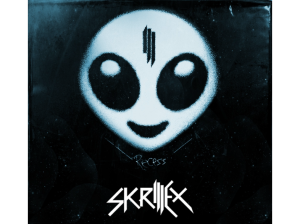OP-ED: Is Skrillex Getting Unfair Criticism For “Recess?”
By Gene Sherman
Live Wire Staff Writer
It’s a little hard to imagine that, after taking the world by storm and almost single-handedly making “dubstep” a household term, Sonny Moore (AKA Skrillex) is just now releasing his debut album, Recess. However, what isn’t at all surprising is that the critics have already started to pile on.
There was a time, before Kmart started lacing their back-to-school ads with bass drops and 8-bit computer noises, that Skrillex was actually somewhat of a critical darling. As with anything these days, Skrillex’s breakthrough EP Scary Monsters and Nice Sprites was making waves on the internet before it became a mainstream hit. Sputnikmusic put it on their 2010 year-end list, writing that, “few could match up to the relentless stream of house, electro, and dub step that Scary Monsters and Nice Sprites spits out.” It also received rave reviews from both Allmusic and Alternative Press.
That was four years ago. Now, publications like Pitchfork (the ultimate decider of cool) have accused Moore of being “far from [a] refined practitioner [of dance music]” and described his music as sounding like a “modem with indigestion.” Sputnikmusic’s review of Recess was even more blunt: “Recess is the final nail in the coffin for any sort of chance at critical acclaim Skrillex had at this point in his career.” As is aural hints of critical acclaim are what people look for when selecting music that is blatantly made to dance to. Also interesting that “final nail” could be used as an appropriate analogy for a debut album but that’s besides the point. So what happened?
The answer is so simple but yet painfully emphasizes all that’s wrong in the field of music criticism: artist finds fans outside of music blog readers, therefore artist is no longer worthy of critical acclaim. We, the elite, can’t bear the thought that our iPods might have something in common with our 15-year-old kid brother’s iPod, so if he likes Skrillex, well, he can have him.
The point of this article is not to argue what a great album Recess is; because it probably isn’t. The point is to highlight the absurdity of the vast amount of derision Moore catches from EDM purists and internet critics; it’s also a call to reevaluate how we assess value in music in a general sense.
If we were to only read about Moore, as opposed to listening to him, we’d think he’s a one-trick pony; merely piling bass drop on top of bass drop. That assessment might have some merit but is mostly only offered to undermine the fact that Moore is an obviously-talented producer and despite having a distinct bag of tricks, is still more innovative than half the electronic music that wins critical acclaim.
This same “flaw” of Skrillex’s could be applied, in a critical fashion, to almost every album ever released: “Man, this techno album is really great but why do they always do that 4/4 drum thing?” or “I think Black Sabbath is okay, I just don’t get why they have to crank their amps in every song.”
Honestly though, look at some of the EDM releases that critics have been fawning over. The UK beatmaker, Will Bevan (AKA burial), essentially releases the same album over and over again (and what a great album it is). But you catch the drift, every song has samey minimalistic dub beats with his trademark disembodied vocal samples drifting over them.
Bevan’s breakthrough, 2007’s Untrue, was fantastically original. However, any and every song he’s released since then would fit right on in on that album. Repetition, in and of itself, doesn’t necessarily make for bad music and I don’t think there’s a single critic that would disagree with that. Repetition didn’t stop pretty much every critic unanimously giving a “best new music” tag to every burial release since 2007. It also didn’t stop some of burial’s signatures making their way into Skrillex’s music. Of course, the very astute critics recognized this immediately and cried foul.
Here’s another tidbit from Sputnikmusic:
“The Reason is trapped between wanting to expand into new territories and Skrillex’s old habits…The song [“Leaving”] as a whole will surely be seen as a poor burial imitation, riddled with every cliche to have come from those trying to emulate the producer’s iconic sound…it all lays out just how amateurish Skrillex’s production actually is.”
This is where the whole argument becomes just a tad bit defeatist. Almost as if music critics somehow forgot the nature of electronic music, even though they’re paid not to. Anyone who knows anything about electronic music realizes that you can’t make these apples-to-apples comparisons about the technical skill of producers because:
a) 99.9% of all electronic music albums aren’t performed live.
b) The era of laptop production has ushered in hundreds of popular programs to record and mix with, all with different capabilities and all requiring different levels of prerequisite skill.
c) Electronic music has certain cliches that it must conform to to be classified as electronic music in the first place.
You might as well add the actual music-listener’s opinion too:
d) none of this is consequential to their experience.
So, you could either take the critics’ argument literally, that is- when burial takes a vocal sample, chops it and puts effects on it, it’s awesome. When Skrillex does the same thing, it sucks – or you could see it for what it really is, “oh my god, if Skrillex starts to sound like burial, sooner or later my 15-year-old brother is going to start listening to burial!”
The horror.









